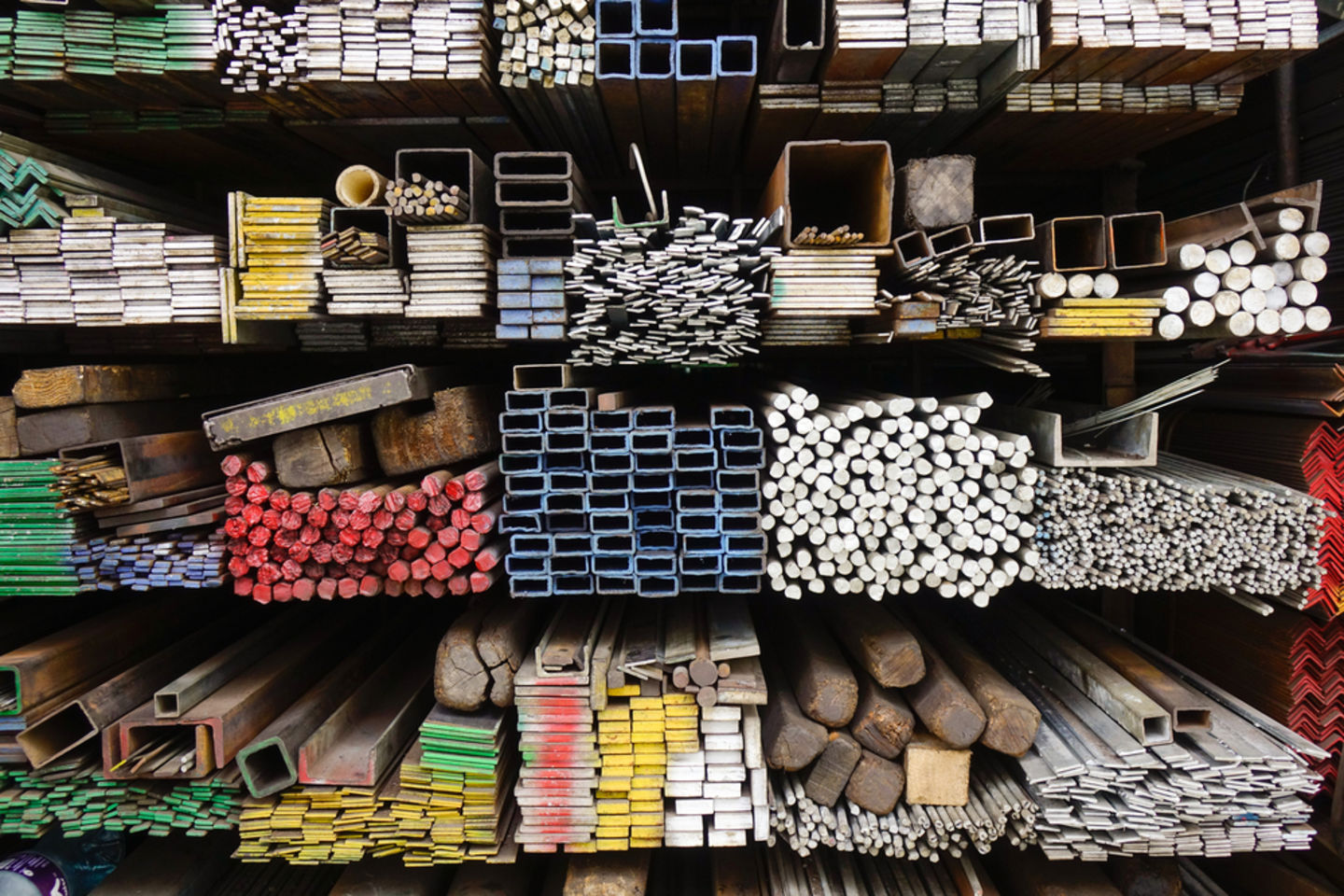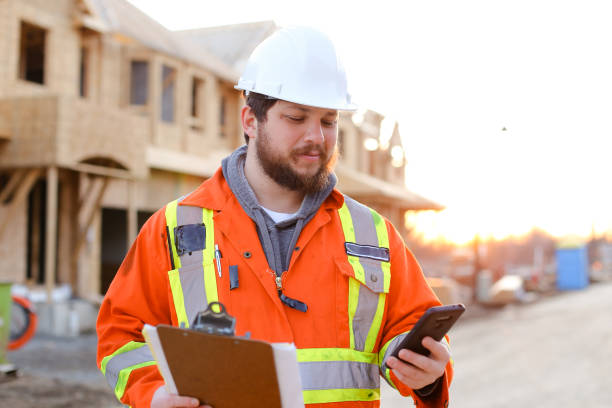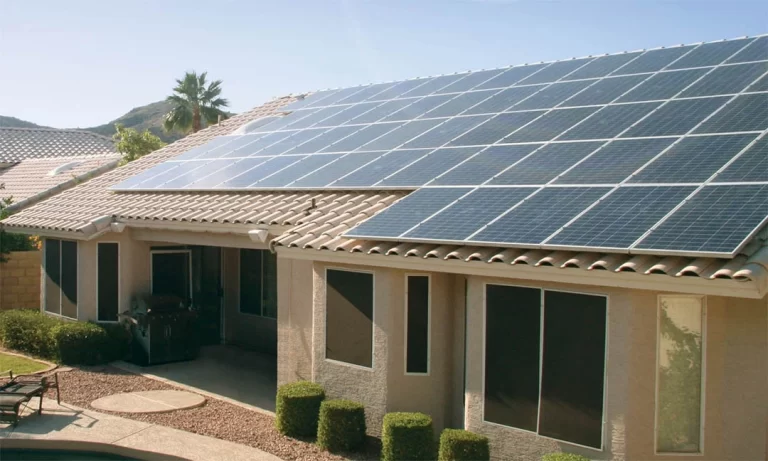Red Flags to Watch for When Selecting Building Materials and Suppliers
When you’re choosing building materials and suppliers, watch for red flags like inconsistent pricing and quotes, which can signal supply chain troubles or financial issues. Verify that materials have up-to-date certifications from recognized organizations, as missing or outdated certifications can expose you to legal and safety risks. Pay attention to supplier reliability, marked by customer reviews and effective communication practices. Excessive upfront payment demands or an unwillingness to provide samples should raise alarms about supplier integrity. Investigating these aspects thoroughly can secure your construction’s quality and timeline—keep exploring to equip yourself with the knowledge to make informed decisions.
Inconsistent Pricing and Quotes
When evaluating potential suppliers for your construction project, beware of inconsistent pricing and quotes. Fluctuating costs can signal deeper issues like supply chain instability or financial unreliability, which could jeopardize the safety and timeline of your build. Consistent pricing, on the other hand, reflects a supplier’s understanding and control over their resources, ensuring that you aren’t left vulnerable to sudden hikes in costs that can throw your budget off track.
You’ll want to look for suppliers who provide transparent, detailed quotes. This not only helps in comparing different suppliers effectively but also guards against hidden costs that could emerge later. A straightforward quote should itemize the costs, including delivery fees and potential surcharges, giving you a clear view of where your money is going.
Don’t hesitate to ask suppliers how they set their prices. Those who base their fees on clear, understandable factors are generally more reliable. Watch out for those who can’t provide a solid rationale for their pricing structure; this could be a sign they’re improvising, which isn’t something you want in a partner responsible for the foundation of your safety.
Lack of Proper Certifications
Another crucial aspect to scrutinize in your quest for reliable building materials is the presence of proper certifications. Certifications aren’t just paperwork; they’re your assurance that the products you’re purchasing meet rigorous safety and quality standards. Without these, you’re fundamentally gambling on material performance, which can compromise the safety of your construction project.
Always verify that the materials you intend to use carry relevant certifications, such as those from the American Society for Testing and Materials (ASTM) or the International Code Council (ICC). These certifications confirm that the products have been thoroughly tested and comply with specific industry standards.
If a supplier can’t provide up-to-date certification for their products, consider it a major red flag. This oversight can lead to severe consequences, including structural failures or non-compliance with local building codes, which could result in costly legal issues and endanger lives.
You’re responsible for ensuring the safety and durability of your building project. Don’t overlook the importance of proper certifications. Doing your due diligence now will save you from potential headaches and heartaches down the road. Always demand and verify certifications before making any final purchasing decisions.
Negative Customer Reviews
Carefully consider customer reviews as they often reveal the reliability and quality of a supplier’s products. When you’re choosing building materials, these reviews can be a goldmine of information, pointing out potential safety risks and durability concerns that might not be immediately apparent from product descriptions alone.
If you notice a trend of negative reviews, take it as a major red flag. Are customers consistently reporting that the materials failed prematurely or didn’t meet safety standards? Such feedback isn’t just disgruntled noise—it’s a vital indicator of potential future headaches. Remember, a building’s safety and longevity hinge on the quality of the materials used in its construction.
Don’t just skim the star ratings. Dive deep into the comments for specifics about what went wrong and how the supplier handled these issues. Were there complaints about the materials not performing as advertised? Did these problems compromise safety? It’s not worth risking your project on a supplier with a track record of unsatisfied customers.
Ultimately, selecting a supplier with positive reviews can save you from costly repairs and renovations down the line. Investing time now in researching feedback protects your project’s integrity and guarantees a safer building outcome.
Poor Communication Practices
If you’re experiencing poor communication from a supplier, consider this a significant red flag. Effective communication is essential in guaranteeing the safety and quality of building materials. When suppliers don’t respond promptly or clearly to your inquiries, it raises concerns about their reliability and transparency. This can lead to misunderstandings, incorrect product specifications, and ultimately, compromised safety standards in your construction projects.
You need a supplier who is responsive and clear. If they can’t provide timely and accurate information before a sale, it’s unlikely they’ll improve after closing the deal. This lack of effective communication can also reflect poor internal management within the supplier’s company, which often translates to erratic product quality and service.
Moreover, consider the impact of communication on project timelines. While discussing delivery times comes later, it’s essential to recognize that initial communication inefficiencies often predict future logistical issues. Always vet potential suppliers on their ability to engage effectively. Ask for references or check online reviews specifically focusing on communication practices.
Don’t compromise on this aspect. A supplier’s communication prowess is directly linked to their ability to deliver safe, quality products that meet your requirements. Choose wisely to guarantee the safety and success of your projects.
Delayed Delivery Times
Despite thorough planning, delayed delivery times from suppliers can disrupt your entire construction schedule. You’ve meticulously mapped out each phase, yet here you are, stalled, waiting on materials that have somehow fallen into a logistical black hole. This isn’t just frustrating; it’s potentially hazardous.
You’re likely juggling multiple tasks and deadlines. When materials arrive late, you’re forced to compress your schedule. This rush can compromise safety, pushing your team to cut corners or work faster under stress. The last thing you want is a safety incident because someone was hurrying to make up for lost time.
It’s essential to vet your suppliers thoroughly. Check their track record for on-time delivery before you commit. Don’t just take their word for it; ask for references or reviews from other builders who’ve used their services. Are there frequent complaints about delays? That’s a major red flag.
Moreover, consider suppliers that offer real-time tracking of shipments. This transparency allows you to plan more effectively and adjust workflows proactively, rather than being caught off guard. Always have a backup plan, too. Identifying alternative suppliers or having surplus stock might be a lifesaver when timelines are tight. Delays aren’t just inconvenient; they’re a risk to your project’s success and safety.
Limited or No Warranty
Often, suppliers who offer limited or no warranty on their building materials are sending a clear message about the quality and durability you can expect. If you’re faced with this situation, it’s essential to reflect on the implications. A lack of warranty not only raises doubts about the product’s reliability but also shows a supplier’s reluctance to stand behind their materials. This should be a major red flag for you.
When a supplier doesn’t provide a strong warranty, you’re left holding the risk. Should the materials fail or perform poorly, you won’t have much recourse. This can lead to increased costs down the line, not just in replacements, but also in labor and potential delays to your project. It’s a risk that’s not worth taking, especially when safety and long-term satisfaction are top priorities.
Instead, look for suppliers who offer thorough warranties that cover defects and performance issues. This reflects confidence in their products and a commitment to customer satisfaction. Remember, a robust warranty not only protects your investment but also provides peace of mind. Always choose suppliers who are prepared to back their products fully. This is non-negotiable for ensuring safety and quality in building materials.
Unwillingness to Provide Samples
Another major concern is when suppliers are unwilling to provide samples of their building materials. You should view this as a significant red flag. Samples allow you to assess the quality and suitability of the materials for your specific project. Without them, you’re fundamentally buying blind, which can lead to safety and durability issues down the line.
Think about it: if a supplier is confident in their products, they’ll be keen to showcase the quality through samples. Their unwillingness could suggest they’re hiding inferior or inconsistent material qualities that could compromise your project’s integrity.
Moreover, testing samples can reveal how the material will interact with other components of your construction, ensuring compatibility and overall safety. It also allows you to physically verify product specifications claimed by the supplier against what’s actually delivered.
Therefore, always insist on obtaining samples before committing to large orders. If a supplier dodges your requests or provides excuses, consider it a serious warning. It’s better to search for a supplier who understands the importance of transparency and safety in building materials. After all, your project’s success and safety should never be left to chance.
Excessive Upfront Payment Demands
Excessive upfront payment demands can be a major alarm bell when choosing building material suppliers. You’re right to be wary if a supplier asks for large amounts of money before delivering any materials. This practice isn’t just unusual; it can be a blatant red flag indicating potential financial instability or fraud.
Typically, reputable suppliers operate with reasonable payment terms, often structured around delivery milestones. When a supplier deviates considerably from industry norms, it’s essential to question their motives and the risks involved.
Here’s a quick comparison to help you gauge what’s typical versus suspicious:
| Payment Term Type | Industry Standard |
|---|---|
| Initial Deposit | 15-30% of total cost |
| Progress Payments | Tied to delivery milestones |
| Final Payment | Upon completion of delivery |
If you’re faced with demands for more than 30% upfront without a credible justification or a clearly defined risk mitigation strategy, think twice. Protect yourself by negotiating payment terms that align with the delivery of goods and services. Always verify that any large upfront investment is protected through either a solid contract, escrow services, or payment bonds. This isn’t just about securing your project’s budget—it’s about safeguarding your project’s future.
No Verifiable Business History
If a supplier lacks a verifiable business history, you should exercise caution before engaging in any transactions. It’s essential to know who you’re dealing with, especially in an industry where safety and quality are paramount. A well-documented track record not only demonstrates reliability but also provides insights into a supplier’s ability to meet deadlines and handle complications.
You might be tempted by lower prices or quicker delivery promises from new suppliers, but remember, these offers come with increased risks. Without previous customer testimonials or a portfolio of completed projects, you’re operating in the dark. Ask yourself if the potential cost savings are worth the gamble of using untested materials or firms that might not meet industry standards or regulations.
Additionally, consider the longevity and sustainability of your project. Established suppliers often have robust fulfillment systems and can provide consistent after-sales support. This is essential for ongoing maintenance and future expansions.
Materials With Obvious Defects
Spotting materials with obvious defects during the selection process can save you significant time and money, preventing future complications in your construction project. You’re building not just structures but trust and safety. When you overlook these defects, you’re risking more than just material costs; you’re compromising on the very integrity of your project.
Visual inspections are essential. You’ve got to look out for cracks, warping, or any signs of poor handling and storage. These defects could suggest deeper issues, such as weak structural integrity or reduced lifespan, which could endanger future inhabitants or users of the building.
Here’s a quick guide to help you identify and act on these defects:
| Defect Type | Immediate Action Required |
|---|---|
| Cracks | Reject and report to supplier |
| Warping | Request replacement |
| Discoloration | Conduct further tests |
Don’t hesitate to ask for certifications and test results that back up the quality claims of materials. It’s your right to demand the best for your project’s safety and durability. Remember, cutting corners now can lead to severe consequences later. Prioritize quality and compliance, and you’ll build with confidence and security.







